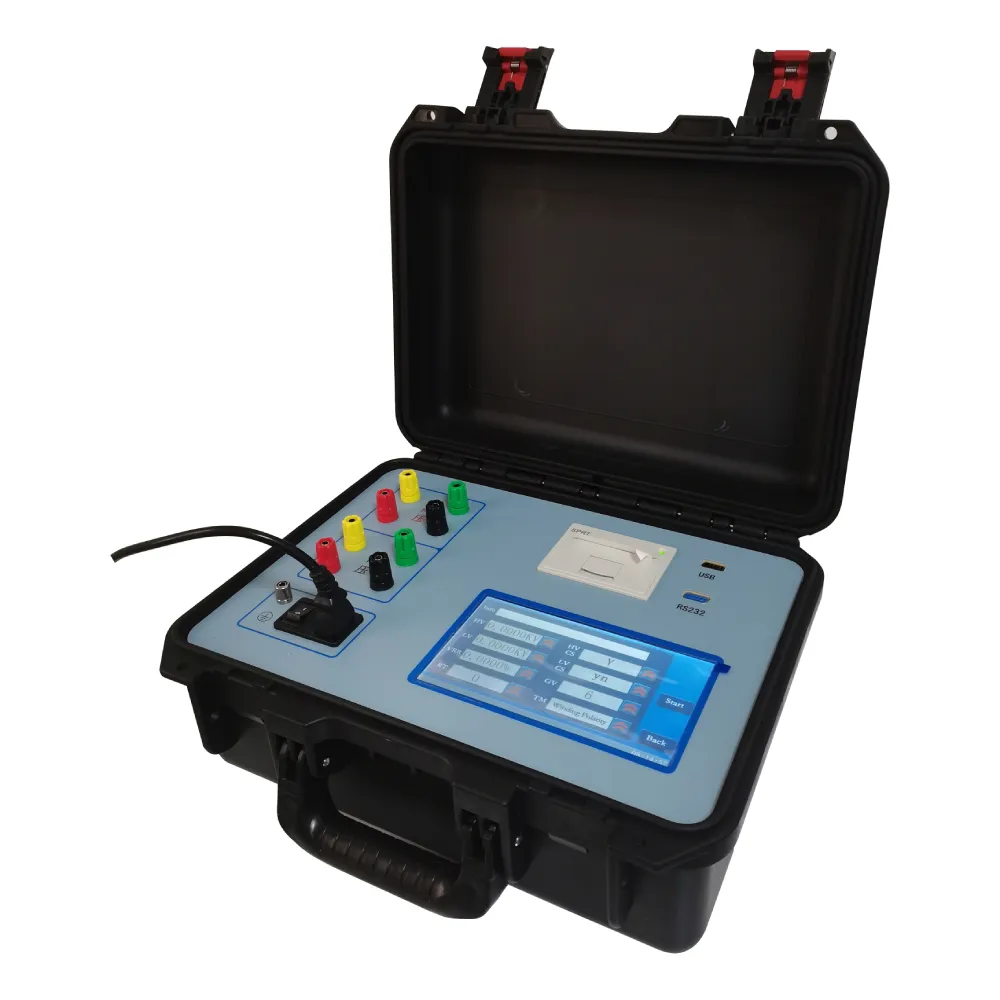 English
English


ground impedance tester
Understanding Ground Impedance Testers Ensuring Safety in Electrical Systems
Grounding is a crucial aspect of any electrical installation. It ensures the safety of both the equipment and the personnel operating around it. One of the essential tools used to evaluate the effectiveness of grounding systems is the ground impedance tester. This instrument is fundamental in the fields of electrical engineering and maintenance, providing essential insights into the integrity of grounding connections.
Ground impedance testers are designed to measure the resistance to ground in various electrical systems. This measurement is vital because a low resistance to ground is necessary to facilitate the proper functioning of protective devices like circuit breakers and fuses. If the ground impedance is too high, it can lead to dangerous conditions, where electrical faults may not be adequately cleared, increasing the risk of electric shock or fire.
How Ground Impedance Testers Work
Ground impedance testers operate by injecting a current into the ground and measuring the voltage drop across a known resistance. This method allows the tester to calculate the impedance, which is a combination of both resistance and reactance. The most common type of ground impedance tester is the three-pole tester, which uses three probes one for the current and two for measuring the voltage drop. By positioning these probes in specific configurations, the tester can accurately assess the ground system's performance.
The procedure typically involves placing the current probe (often referred to as the C electrode) in the ground at a specified distance from the grounding electrode being tested, while the two voltage probes (the P1 and P2 electrodes) are positioned accordingly to read the voltage drop. The device computes the ground resistance based on these readings. Advanced models can also measure parameters such as transient impedance, allowing for a comprehensive overview of the grounding system's capabilities.
Applications of Ground Impedance Testing
ground impedance tester

Ground impedance testers are used across various industries. In power generation and distribution, they ensure that substations and transformer installations meet safety standards and are capable of effectively grounding fault currents. In commercial and industrial settings, regular testing of ground impedance is mandated by electrical codes to ensure worker safety and minimize equipment damage.
Moreover, in construction, ground impedance testing is crucial for establishing safe working conditions around electrical systems. Ensuring reliable grounding reduces the risk of electrical disturbances during construction activities, protecting workers and sensitive equipment. Additionally, telecommunications and data centers rely on proper grounding to maintain uninterrupted service and protect against surges.
Benefits of Using Ground Impedance Testers
The primary benefit of using a ground impedance tester is enhanced safety. By regularly measuring and maintaining adequate ground resistance levels, facilities can prevent severe accidents caused by electrical faults. Moreover, leveraging these tests can lead to improved system reliability, reducing downtime and protecting valuable equipment.
Furthermore, many modern ground impedance testers come equipped with digital displays, data logging capabilities, and connectivity options, allowing for easier data interpretation and record-keeping. This technology facilitates compliance with safety regulations and helps organizations maintain detailed documentation of their ground testing activities.
Conclusion
Ground impedance testers are indispensable tools in the monitoring and maintenance of electrical systems. Through their ability to accurately measure ground resistance, they play a pivotal role in ensuring electrical safety, preventing hazardous conditions, and complying with industry regulations. As our reliance on electricity grows, so too does the importance of effective grounding solutions. Investing in ground impedance testing not only safeguards people and equipment but also contributes to the overall stability and efficiency of electrical infrastructure.
-
Differences between open cup flash point tester and closed cup flash point testerNewsOct.31,2024
-
The Reliable Load Tap ChangerNewsOct.23,2024
-
The Essential Guide to Hipot TestersNewsOct.23,2024
-
The Digital Insulation TesterNewsOct.23,2024
-
The Best Earth Loop Impedance Tester for SaleNewsOct.23,2024
-
Tan Delta Tester--The Essential Tool for Electrical Insulation TestingNewsOct.23,2024





